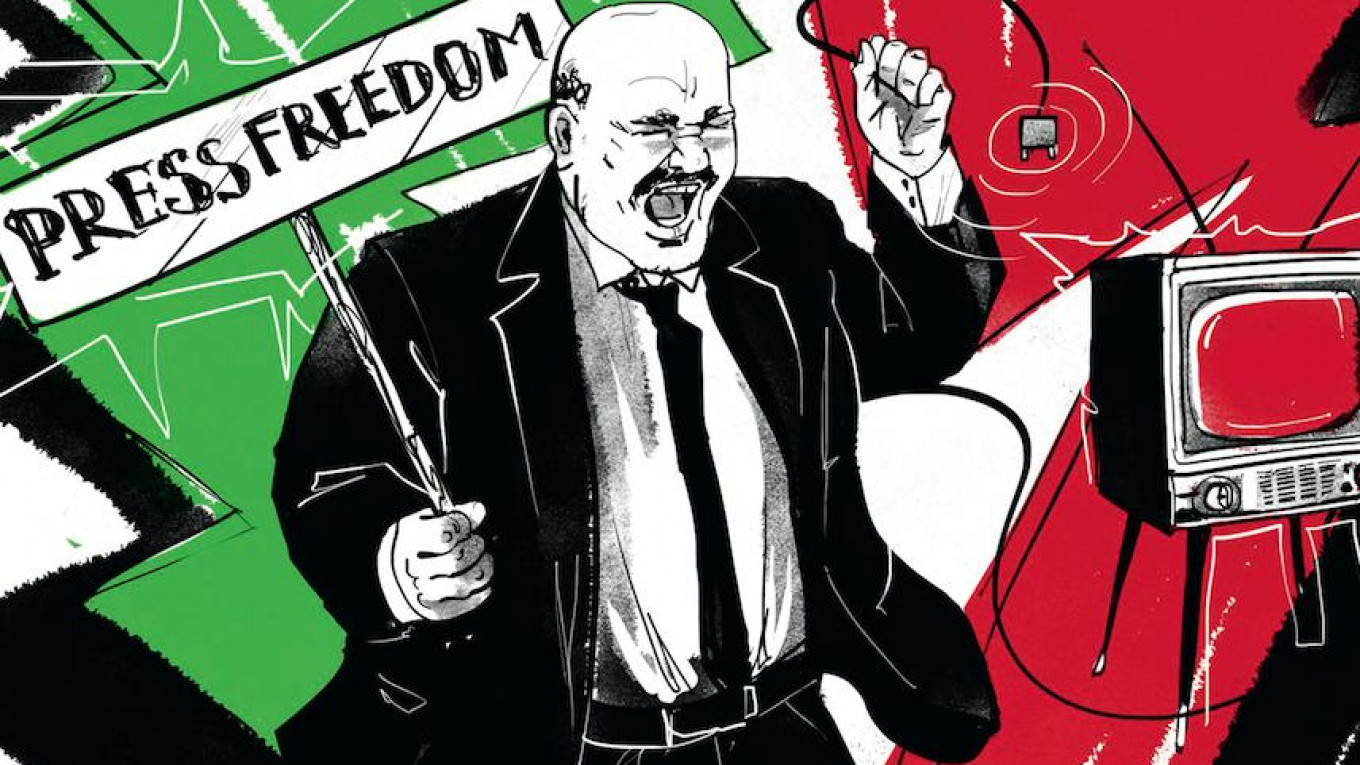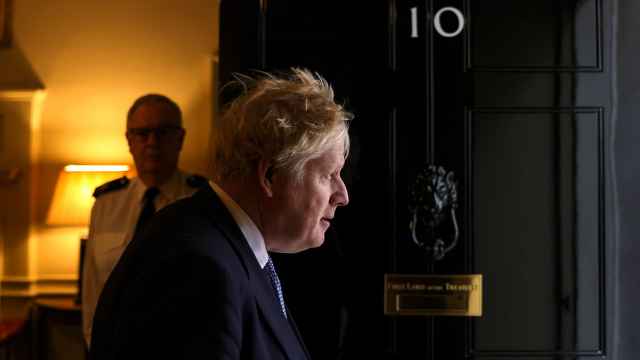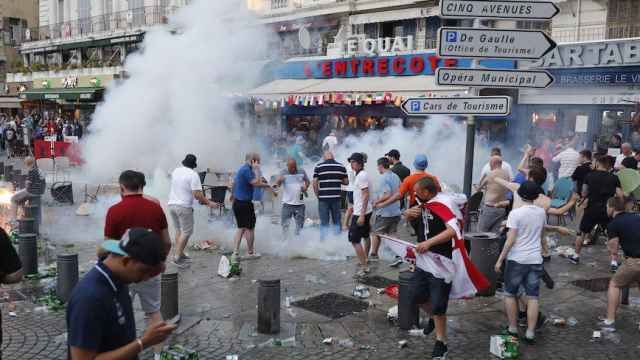London’s strained relations with Moscow have taken a turn for the worse.
On Monday, a British bank said it intended to stop servicing the British branch of Kremlin-financed television channel RT (formerly known as Russia Today), provoking an outcry in Moscow and threats of retaliation.
The Royal Bank of Scotland Group, which owns NatWest, notified RT that it would sever its business relations with the Russian state international broadcaster. RT published a letter from the bank on Monday, which said the network’s accounts would be closed the following month and that the decision was final.
"We have recently undertaken a review of your banking arrangements with us and reached the conclusion that we will no longer provide these facilities," the letter said. Margarita Simonyan, RT’s Western-educated editor-in-chief, was quick to accuse British authorities of censorship. "Praise be to freedom of speech!" she tweeted sarcastically in Russian on Monday.
The following day, NatWest said it was reviewing the situation and confirmed the accounts are, for the time being, still "active." The British Treasury and Prime Minister Theresa May’s office also said they had nothing to do with NatWest’s decision. Britain’s media regulator Ofcom, which has sanctioned RT in the past for biased coverage, too denied involvement.
RT Cries Wolf
Nonetheless, RT and the Kremlin are pointing fingers at Westminster and promising retaliation. Maria Zakharova, spokeswoman for the Russian Foreign Ministry, wrote on Facebook: "It appears that, leaving the EU, London left behind all its freedom of speech obligations. As they say, start a new life without bad habits." Within hours, Russian Foreign Minister Sergei Lavrov stated that "banks don’t make such decisions on their own."
Before long, there were calls in Moscow for tit-for-tat reprisals. On Tuesday evening, Zakharova told RT, "Our stance is straightforward: we will stick up for our own. They [Britain] will get as good as they give."
"We should freeze the BBC’s accounts in Russia," suggested Senator Igor Morozov. Moscow has often argued that its state broadcasters are no different than the BBC, saying both are government funded. But RT has a clear aim in its broadcasts in the West: to counter what it calls the "mainstream media." In its programs, RT only invites interviews guests — often from the far-left or far-right fringe — who it knows will support the Kremlin.
British media watchdog Ofcom has warned RT over its biased coverage of the conflicts in Syria and Ukraine in the past. Last year, Ofcom ruled that RT violated the Broadcasting Code for coverage, including one report alleging that the BBC had staged a chemical weapons attack by the Assad regime.
Risks Higher Than Profits
The Royal Bank of Scotland’s press office refused to comment to The Moscow Times on why such a move was taken, but said it had nothing to do with the British government. The bank’s relationship was not with RT itself, but with another company which provided services to the channel.
"If NatWest has gone ahead with this without informing the government, it is a very bad decision," says Euan Grant, a British expert on transnational fraud. NatWest is a majority government-owned bank so Moscow will use this to say it is a state bank, he believes. "This will undoubtedly lead to retaliation, but [it] sends a very necessary message," he says, warning to expect reprisals "against bankers [in Russia] and possibly expulsions." Russian employees of British institutions, he says, could also face greater scrutiny as a result.
British analyst Alex Nice agrees that it is "not unthinkable" for Moscow to make life harder for foreign journalists in Russia. But evidence suggests that NatWest’s decision was likely made internally. The bank may have decided that the reputational risk of servicing a client like Russia Today was higher than the reward. "If NatWest did decide to suspend the accounts, it would [have] more to do with internal compliance," says Sarah Lain, an expert in British-Russian relations at the Royal United Services Institute.
Russia and Russian-connected companies, she says, are considered high-risk in the British banking sector. "It is a bank’s decision to choose to end a relationship with a client," says Lain.
Following Russia's 2014 Crimea annexation, Dmitry Kiselyov — the CEO of Rossiya Segodnya, state news agency and sister company of RT— was included on the European Union's sanctions list. As relations with the West deteriorate further, servicing a company linked to Kiselyov could have affected NatWest's decision to cut ties with RT, suggested a lawyer of a major international bank operating in the UK.
Even so, the timing of RT’s row with NatWest has raised eyebrows. Only last week, British Foreign Minister Boris Johnson enraged the Kremlin by asking why British left-wing groups were not protesting Moscow’s bombing of Aleppo outside the Russian Embassy in London. In a speech in parliament, Johnson said Russia "risks becoming a pariah state." The same week, Britain and the United States considered imposing new economic sanctions on Russia for its Syria policy.
Is It Worth It?
Although there have been calls to limit the activities of RT in Europe and America, most Western policy makers maintain that such moves would be counterproductive and unnecessary. In the first week of October, RT had 644,000 viewers in Britain — a small figure compared to mainstream channels. "In countries where there are so many viewpoints already on offer, the impact is not as significant," says Lain.
If Russian state propaganda is indeed becoming a headache for British authorities, it is likely in Scotland. Edinburgh is fast turning into a leading hub for Kremlin media in Europe. Sputnik International has offices in the Scottish capital. Pro-Kremlin channels have been enthusiastic about covering Scotland’s independence movements.
"Whitehall has been made aware of concerns about Sputnik staff [in Edinburgh] having links with the Russian Defense Ministry," says Euan Grant. Down in London, it remains unclear if the British government was consulted or indeed informed about NatWest’s decision. Whatever the case — Moscow will not take this lightly.
A Message from The Moscow Times:
Dear readers,
We are facing unprecedented challenges. Russia's Prosecutor General's Office has designated The Moscow Times as an "undesirable" organization, criminalizing our work and putting our staff at risk of prosecution. This follows our earlier unjust labeling as a "foreign agent."
These actions are direct attempts to silence independent journalism in Russia. The authorities claim our work "discredits the decisions of the Russian leadership." We see things differently: we strive to provide accurate, unbiased reporting on Russia.
We, the journalists of The Moscow Times, refuse to be silenced. But to continue our work, we need your help.
Your support, no matter how small, makes a world of difference. If you can, please support us monthly starting from just $2. It's quick to set up, and every contribution makes a significant impact.
By supporting The Moscow Times, you're defending open, independent journalism in the face of repression. Thank you for standing with us.
Remind me later.






